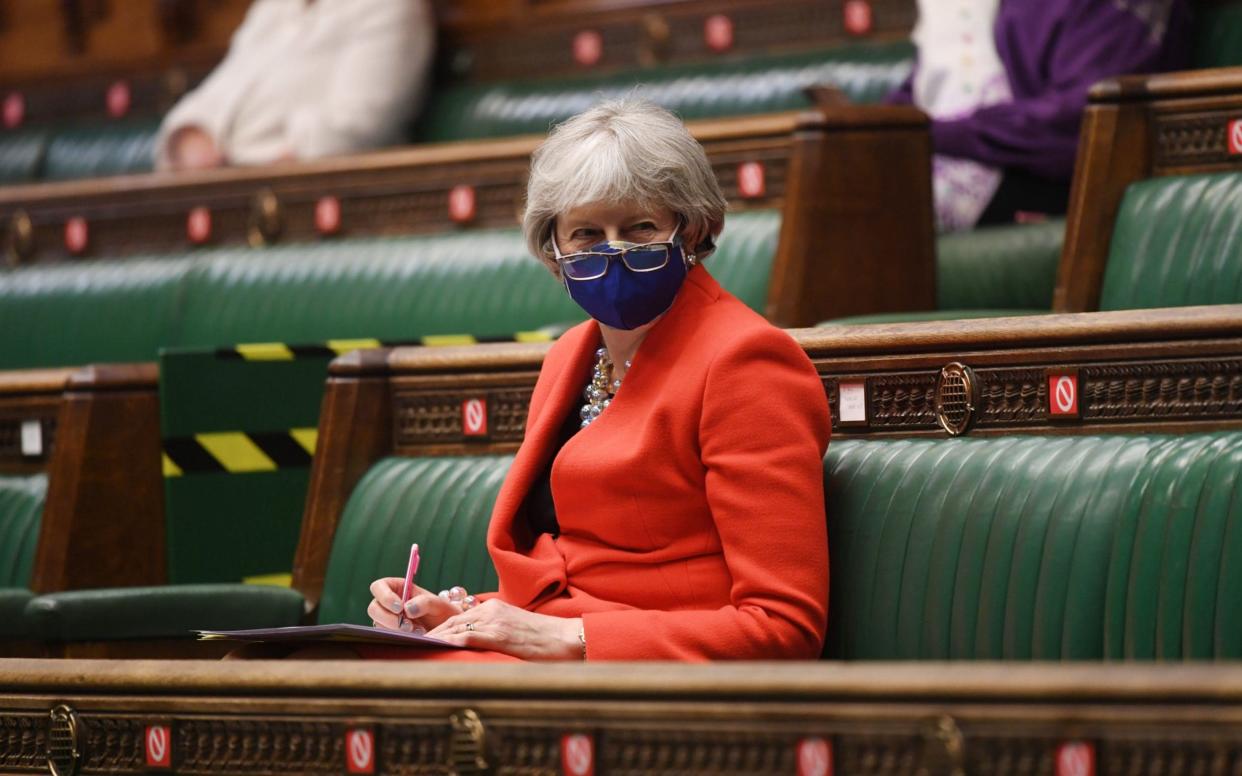Foreign aid rebels urge No 10 to reintroduce spending pledge or risk Commons defeat

- Oops!Something went wrong.Please try again later.
Tory rebels have urged the Government to re-introduce its 0.7 per cent foreign aid pledge next year or face defeat in the Commons.
Over 40 MPs, including former Prime Minister Theresa May, are understood to be prepared to back an amendment on Monday that would require ministers to reverse their cut in the foreign aid budget to 0.5 per cent of national income.
However, they have offered the Government an "olive branch" by accepting a delay to its reintroduction until next year, by which time the economy should have improved, they say.
The Government has so far refused to budge, and Matt Hancock declared on Sunday that it was "entirely reasonable" to cut foreign aid when the UK faced "a once-in-300-year economic interruption" as a result of the pandemic.
However, the Health Secretary left the door open to a possible compromise by insisting it was a "temporary" move.
Sir Lindsay Hoyle, the Commons speaker, has yet to decide whether to call the rebel amendment, which has been put down to the Advanced Research and Invention Agency (Aria) Bill on Monday.
The rebels believe the Government is holding out on offering any concessions until that decision is taken. It is understood the Government could defuse the revolt by committing at the Commons dispatch box to reinstating the 0.7 per cent target next year.
'Cautiously optimistic'
Tom Tugendhat, chair of the Foreign Affairs Committee and one of the rebels, said they were "cautiously optimistic" they could defeat the Government.
"The reality is that what we’re trying to do here is we’re trying to make sure that Britain’s foreign footprint, that global Britain, really means something," he said.
Another of the leading rebels, Andrew Mitchell, a former international development secretary, warned that the foreign aid cut risked overshadowing this week’s G7 leaders’ meeting in Cornwall.
"Britain is the only G7 country cutting aid. The French are set to reach 0.7 per cent, the Germans will exceed 0.7 per cent this year and the Americans are increasing aid by $14 billion," he said.
"Developing countries that Britain needs to make commitments to at the COP26 climate summit later this year are being alienated at the very moment we need a global agreement to tackle the global climate emergency. The policy makes no economic sense and no diplomatic sense."
'No justifiable economic need for reduction'
It came as a letter - signed by more than 1,700 academics, charities and business leaders including Oxfam and ActionAid UK - warned that the foreign aid cuts had caused "devastation" that could undermine the UK's credibility at the G7 summit. They said there was "no justifiable economic need" for the reduction of almost £4 billion a year.
In 2020, the UK spent £14.5 billion on aid, meeting its 0.7 per cent target, according to provisional data.
The Government has pledged to restore aid spending to 0.7 per cent "when the fiscal situation allows", but it has not specified a date. Ministers cut the spending without changing a 2015 law which made the 0.7 per cent target legally binding.
Speaking at yesterday’s Hay festival, former Prime Minister Gordon Brown said the Government should reverse cuts to help pay for the entire world to be vaccinated.
Boris Johnson has pledged to help vaccinate the world by the end of next year, with up to 100 million of the UK’s 400 million ordered doses expected to be delivered. This would normally be counted as part of the UK’s overseas aid.
Mr Brown said the Prime Minister’s vaccination pledge should not only be "a promise but a plan".
"That means the money has to be put on the table and that means the cuts in overseas aid that we've seen should be reversed to make it possible for us in our own interests because it's actually not just charity, it's not just compassion, it's actually self protection," he said.
